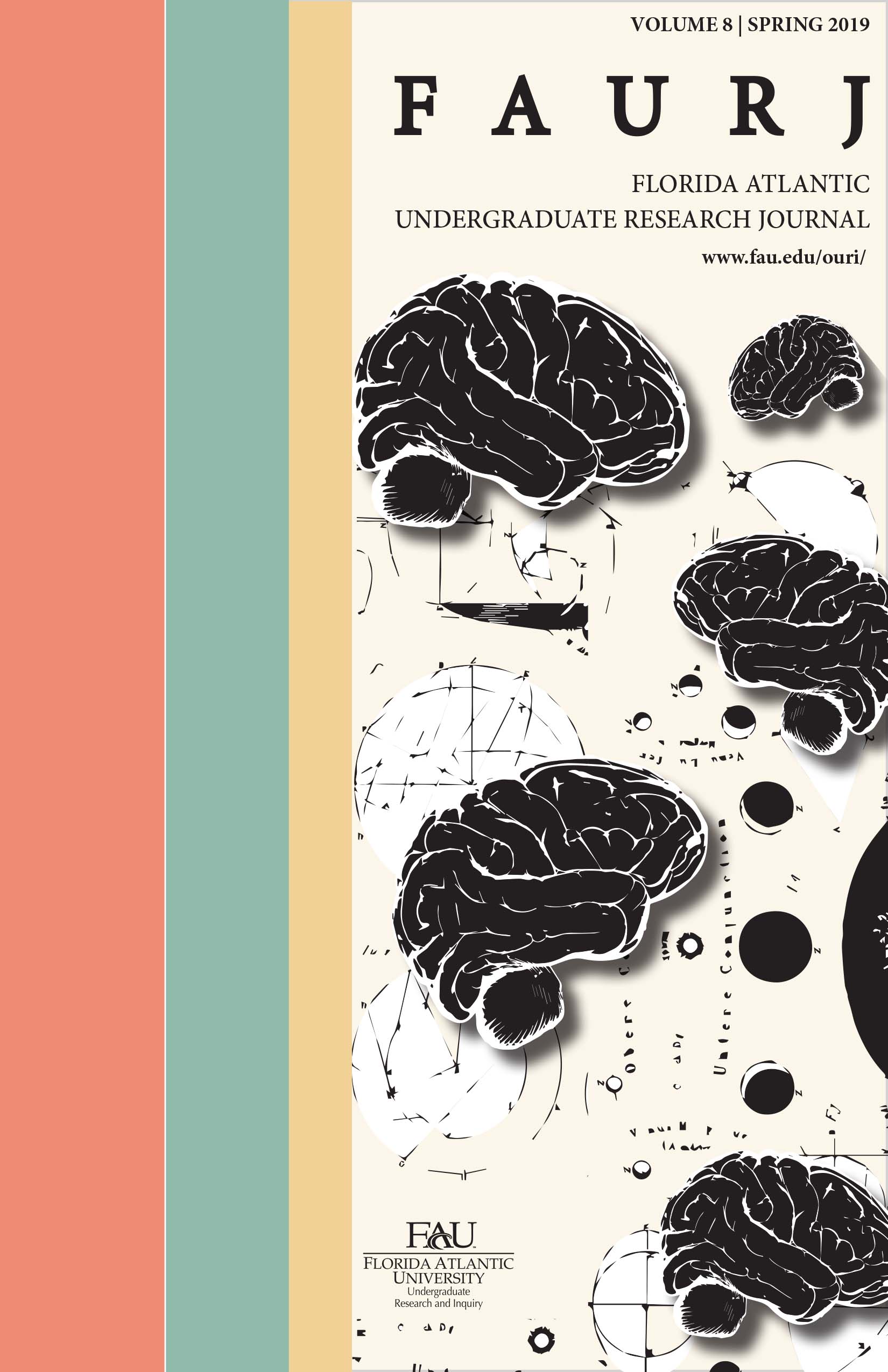Discovery of Soil Bacteria Which Display Broad-Spectrum Antibiotic Activity
Keywords:
antibiotic resistance, hospital-acquired infections, broad-spectrum antibiotic activityAbstract
Antibiotic-resistant ESKAPE pathogens
(Enterococcus faecium, Staphylococcus aureus, Klebsiella
pneumoniae, Acinetobacter baumannii, Pseudomonas
aeruginosa and Enterobacter species) are the leading
cause of hospital-acquired infections, and thus, the
discovery of novel antibiotics that kill them is crucial. Soil
collected from Palm Beach County by undergraduates
in Life Science Lab (RI:BSC1005L) contained multiple
bacterial isolates with broad spectrum antibiotic activity.
Soil bacteria that kill the safe relatives of the ESKAPE
pathogens and safe models (Erwinia carotovora, Bacillus
subtilis and Mycobacterium smegmatis) were characterized
by microbiology assays and bioinformatics to determine
their identities. Antibiotic compounds were extracted
from four bacteria that kill both Gram-negative and
-positive safe relatives; these bacteria were determined
to be Gram-negative and 83-97% homologous to various
Pseudomonas species.


